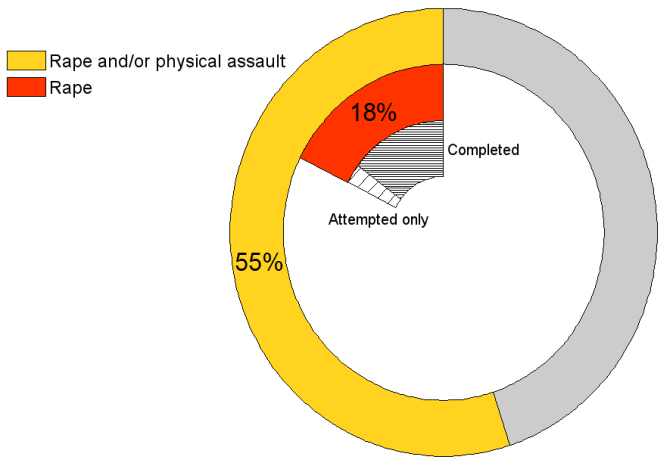It is not only facts per se that matter, but also what people think about their likeliness and underlying causes. Mental models drive people in making choices—including at the ballot box—and taking actions. In this way, ideas about facts affect society by and large.
Which mental models do males hold about sexual abuse on women? Whichever the model, it has to predict an expected number of occurrences. If this figure falls short of the observed number, then the determinants of sexual abuse are underestimated. Nonetheless, people will still operate on the basis of such an inconsistent mental model, at least until it is revised. In particular, those who underestimate the amount of sexual abuse on women might perceive any discussion on the topic to overemphasize the issue. This should come as no surprise, since their mental model erroneously estimates the problem to be smaller than it actually is. Hence, reality will tend to bring it up more intensively than they consider necessary.
It is easy to check whether people misinterpret reality through their mental models. How many women do they think have suffered from rape? How rare do they think it is for a woman to be masturbated at in public? Or to be physically assaulted? To answer any such questions, a person needs to reveal the expectation coming from his personal mental model. The odds are that sexual abuses on women will turn out being consistently underestimated over a long period of time. Who would ever guess from scratch the gigantic figures reported in Figure 1 below?

Figure 1. Percentage of women who have been victims of rape and/or physical assault during their lifetime. United States, year 1998. Source: U.S. Department of Justice.
An open issue remains as to what might cause inconsistent mental models of sexual abuse on women. One possibility is that the denigration of feminism in the public discourse entails a tendency to minimize male abuse. Otherwise, one would have to recognize that one gender is systematically victimized by the other, thus making the case for feminism. The denial of conflict, instead, fits well with the spirit of the time. In the same way in which labor conflicts are treated as factious rent-seeking activities, so feminism is relegated to the domain of “extremism”. As a result, feminist instances can be comfortably shrugged at by entire armies of well-educated modern men. “Don’t make such a fuss”, they say to the rare women who speak up against their last sexist comment, “It is just a joke!”.
